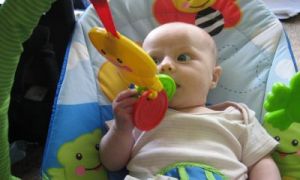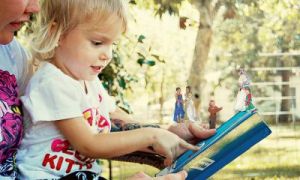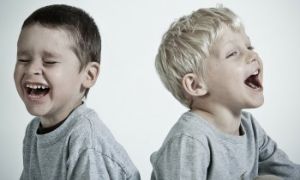

A: The essence of reflection lies in its depth and authenticity—a well-articulated reflection can transport the reader into the moment, spark emotions, and leave lasting lessons. The joy of learning, perseverance, discovery, and growth breathe life into the concept of reflection, the kind that celebrates the humanity and unpredictability of education and development. It’s not about ticking boxes; it’s about telling tales of triumphs, struggles, and the endless curiosity that fuels progress. Here are some ideas to make reflections more inspiring and impactful:
Mother’s Day can be a sensitive time for families without mothers, but it’s also an opportunity to celebrate all caregivers and loved ones who nurture and support children. Here are some inclusive ways to honour the day.
Numeracy indicators are tools or benchmarks used to assess and support the development of numeracy skills in children. They help educators recognize, plan for, and evaluate a child's understanding and application of mathematical concepts.
It's not necessary—or even always advisable—to celebrate every significant cultural event on the calendar each month. Instead, think of your seasonal or monthly celebrations as a curated tapestry, where each thread is carefully chosen for its relevance, impact, and ability to resonate with the children and their communities. The following article provides Key Considerations when selecting monthly celebrations, When Does It Become Tokenistic, Questions To Ask To Decide Which Significant Monthly Cultural Event To Celebrate and more.
A: Dealing with negative behaviors such as passive aggressiveness, negativity, gossiping, cliques, favoritism, and a lack of motivation within an educator team is a challenging yet critical leadership task. These behaviours not only disrupt team cohesion but can also trickle down and impact the learning environment provided for the children. Drawing on experiences shared within the Educational Leaders and EYLF/NQS support groups, here are some strategies and points to consider:
Higher duties in the Children's Services Award refer to situations where an educator temporarily performs tasks or responsibilities that belong to a higher classification or position than their usual role. During this time, appropriate compensation should be awarded.
Rotation schema refers to a pattern of engagement where spinning, twirling, and circular motions tap into a child's innate fascination with movement and rhythm. It’s a developmental window into how children explore and understand the world around them.
The trajectory schema is one of the key patterns observed in schematic play, where children explore movement—particularly the paths objects take when they are thrown, dropped, or otherwise in motion.
Sharing circles are a powerful tool for fostering collaboration, reflection, and connection among educators in early childhood settings. They create a safe and inclusive space where educators can share experiences, challenges, and successes, promoting professional growth and emotional well-being. Here are some insights and ideas based on the concept of sharing circles.
 Toddlers have a greater understanding of the world around them by this stage. Their cognitive development (also known as intellectual development and thinking skills) continues… Read More
Toddlers have a greater understanding of the world around them by this stage. Their cognitive development (also known as intellectual development and thinking skills) continues… Read More
 Infants begin to develop trust when parents begin to fulfil their needs. Such as changing an infant's nappy when needed, feeding on request and holding… Read More
Infants begin to develop trust when parents begin to fulfil their needs. Such as changing an infant's nappy when needed, feeding on request and holding… Read More
 Beginning at birth the construction of thought processes, such as memory, problem solving, exploration of objects etc, is an important part of an infant’s cognitive… Read More
Beginning at birth the construction of thought processes, such as memory, problem solving, exploration of objects etc, is an important part of an infant’s cognitive… Read More
 Toddlers want to do more on their own and do not like it when you begin to establish limits on their behaviour. Tantrums can become… Read More
Toddlers want to do more on their own and do not like it when you begin to establish limits on their behaviour. Tantrums can become… Read More
 Your preschooler is now able to focus their attention more accurately and is less influenced by distractions. The intensity of questions increase as your child… Read More
Your preschooler is now able to focus their attention more accurately and is less influenced by distractions. The intensity of questions increase as your child… Read More
 John Dewey is often seen as the proponent of learning by doing – rather than learning by passively receiving. He believed that each child was active,… Read More
John Dewey is often seen as the proponent of learning by doing – rather than learning by passively receiving. He believed that each child was active,… Read More
 Toddler advance and gains new skills in Gross Motor Development milestones achieved throughout earlier years. Co-ordination and challenges that could not be performed before such… Read More
Toddler advance and gains new skills in Gross Motor Development milestones achieved throughout earlier years. Co-ordination and challenges that could not be performed before such… Read More
 Erik Erikson developed a psychosocial theory to understand how we each develop our identities through eight stages of psychosocial development from infancy to adulthood. The… Read More
Erik Erikson developed a psychosocial theory to understand how we each develop our identities through eight stages of psychosocial development from infancy to adulthood. The… Read More
 At this point preschoolers begin to interact effectively with others. Play becomes more innovative and organized and “boyfriend” or “girlfriend” begins to emerge. Preschoolers have… Read More
At this point preschoolers begin to interact effectively with others. Play becomes more innovative and organized and “boyfriend” or “girlfriend” begins to emerge. Preschoolers have… Read More
 From now, babies begin to identify and respond to their own feelings, understanding other's feelings & needs and interact positively with others. A baby's social and… Read More
From now, babies begin to identify and respond to their own feelings, understanding other's feelings & needs and interact positively with others. A baby's social and… Read More

Fine Motor involves the development of the small muscles of the body. The development of...
See more...
Toddlers use language in more sophisticated ways during this phase of their life. This occurs...
See more...
As Educators, there will be many instances where you will need to write about a...
See more...© 2009-2025 Aussie Childcare Network Pty Ltd. All Rights Reserved.
